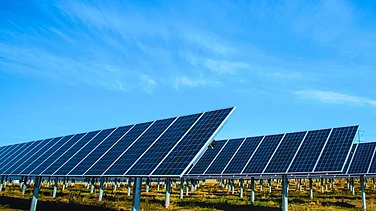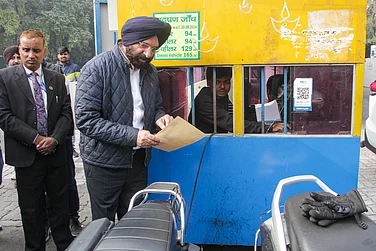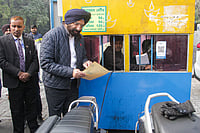
Government may rebid 40 GW solar, wind projects lacking purchase agreements.
Virtual PPAs close to finalisation, could unlock corporate financing support.
IEA warns India’s renewable pipeline slowing without innovative contract models.
The government is planning to rebid around 40 GW of renewable energy projects that have been stalled in the absence of power purchase agreements (PPAs), official sources told PTI on September 18.
These 40 gigawatt (GW) includes both solar and wind capacity projects, one of the sources said.
“Marketing efforts are on. If it does not get any success then “we will see at some point we will close it”, sources told PTI.
At present, the winners of these tenders are engage with distribution companies (discoms) because they are the potential buyers, they said adding that no one is going to face any loss as no investment has happened yet in these projects.
It is only the price discovery which has happened. Tariff rate of the solar projects ranges from ₹2.38 to ₹2.56 per unit, while for that of vanilla wind between ₹3.70 per unit and ₹3.90 per unit, they said.
Meanwhile, industry body FICCI said in a statement that the Central Electricity Regulatory Commission (CERC) will release final guidelines for virtual power purchase agreements soon, potentially unlocking financing for over 40 gigawatts of stranded renewable energy projects across the country.
As per the statement cited by PTI, S K Chatterjee, Chief of Regulatory Affairs at CERC, has said that the commission was “almost at the final stage of finalising” the framework after receiving extensive stakeholder feedback on draft guidelines released in May.
The announcement signals a breakthrough for the country’s renewable energy sector, which has concerns with traditional power purchase agreements regarding delays in payment from distribution companies, FICCI said.
It said virtual PPAs allow corporate buyers to financially underwrite renewable projects without taking physical delivery of electricity, instead receiving renewable energy certificates as proof of green power procurement.
The commission conceived virtual PPAs would serve two critical purposes: enabling stakeholders to obtain green attributes for environmental, social and governance compliance without requiring traditional power purchase agreements and supporting over 40 gigawatts of renewable energy projects.
Global Push for Innovation
While India is particularly well placed to become a global leader in renewable batteries and green hydrogen, according to a International Energy Agency (IEA) report. These and other low-carbon technologies could create a market worth up to $80 billion in India by 2030.
The IEA report warned that unless innovative market tools like virtual PPAs expand, India’s renewable pipeline risks slowing down. It further added that companies globally are increasingly using such contracts to meet net-zero targets, implying that India’s adoption could match corporate sustainability pledges with energy growth.
(With inputs from PTI.)




























